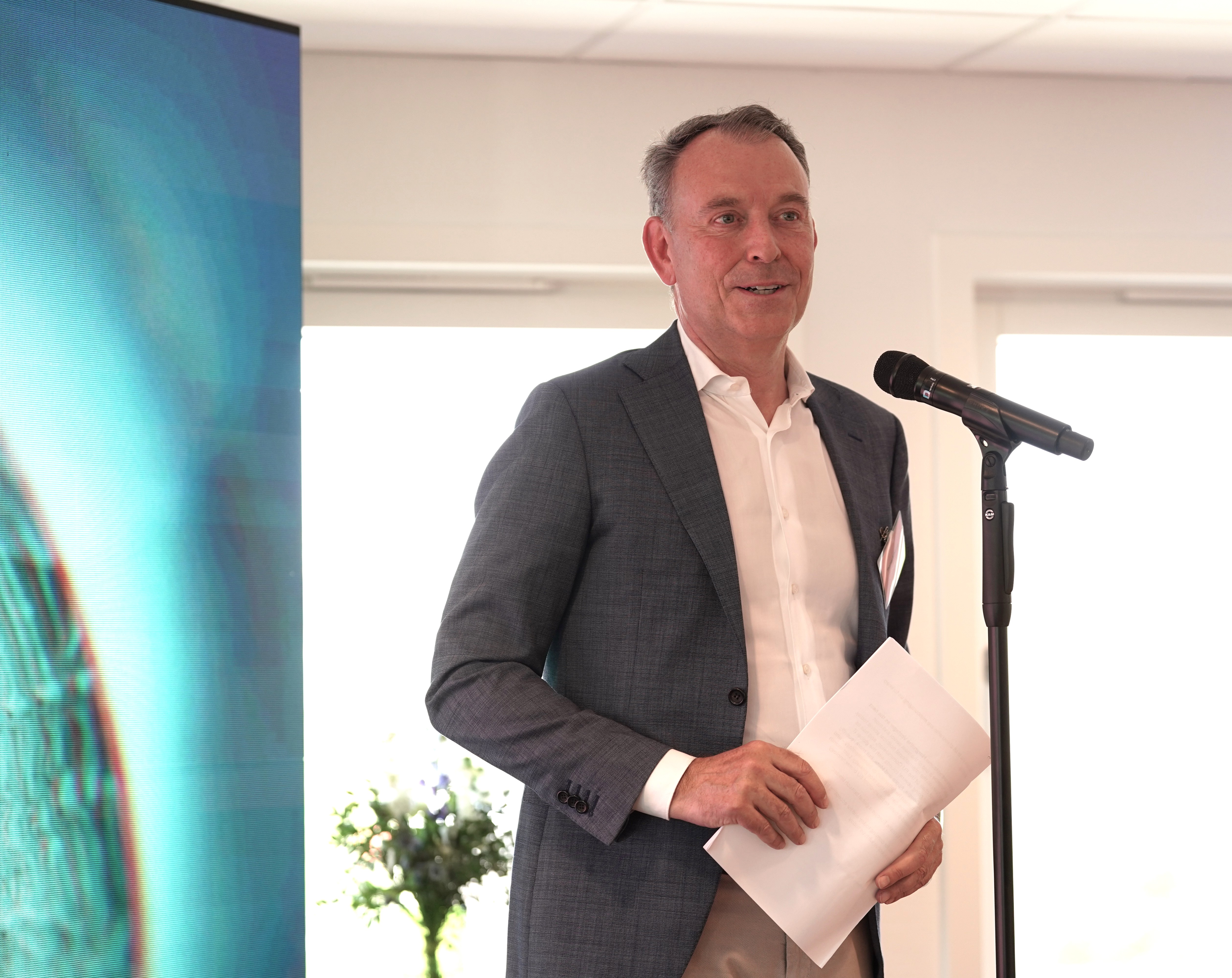
Smarter Approaches to GM Regulation
Smarter Approaches to GM Regulation
A fireside chat at SynBioBeta London 2017 will provide a remarkable perspective on the GMO (Genetically Modified Organisms) movement through the eyes of two divergent personalities, each who aims to shape the future of GMs (genetically modified) and Europe’s synbio regulatory framework in complementary ways.
Taking the stage will be environmental writer and activist Mark Lynas and Joyce Tait, Director of the University of Edinburgh’s Innogen Institute and one of the UK’s most insightful thinkers on the dialogue between scientific advance and regulation. Many will recall the apology that Lynas offered in 2013 at the Oxford Farming Conference. For 15 years he had led the charge against GMs, arguing that GM foods are ‘unnatural” and that they “intensify human technological manipulation of nature when we should be aiming at a more holistic ecological approach instead.” He had gone so far as to organize highly publicized raids on fields where GM crops were being tested and rip out plants. His heart-felt mea culpa came about from his decision to apply the same close scrutiny to the science of agriculture that he had given to the science of climate change in researching several books on that subject. He discovered he had been wrong all along about GMs and that dozens of scientific organizations -- including The Royal Society in the United Kingdom and the National Academy of Sciences in the U.S. – had been right when they asserted that GMs are safe and absolutely necessary if we’re to feed the nine billion people who are projected to populate the planet within the next 30 years. “We will have to grow more food than has been grown in all of human history,” he now warns. “And we will have to do it with virtually no increase in arable land, less potable water per person, and a climate that’s changing rapidly—and not for the better.” Since his epiphany, Lynas has focused much of his effort as a writer and activist toward changing agricultural policies and practices in developing countries, where anti-GM activists have succeeded in blocking any deployment of GM crops for years. As a result, farmers have been unable to exercise their own choices in what to grow. "The big problem for developing countries is that rich-world foodie superstition about GMs has been exported to poor nations whose farmers could really benefit from better crop varieties to improve their productivity and resilience in the face of diseases and climate change.” How developing countries can overcome this superstition, institute a regulatory system that opens the door to progress, and incorporate GMs in rational policy and practices will be a main focus of Lynas’s remarks. As a prime example of the problem developing countries are facing, Lynas offers drought-stricken Tanzania, which Lynas recently visited.“Subsistence farmers are in dire straits,” he says. “Maize crops are shriveled and most farmers have not been able to plant at all.” “Drought-resistant maize would not solve this problem but it would at least give farmers a better harvest in dry conditions on average,” he continues. “Given that these are subsistence farmers dependent on what they can grow to feed their families, this is of critical importance. But there is still a law in Tanzania that effectively prohibits commercial release of GM crops, and activist groups spread myths such as that GM crops cause cancer, impotence, or will turn your children gay.” (“I’m not joking,” he adds.) Lynas aims to bring farmer perspectives in developing countries to wider international attention and to further a dialog with Tanzanian and other African scientists who are pioneering these improved staple crops for their farmers. These initiatives, he notes, “are being driven by the public sector, not by the commercial interests of outside companies, as is often alleged.”

Mark Lynas in Tanzania with farmer Juma Chizuwa inspecting virus-affected cassava crop. GM virus-resistant cassava is in development but currently blocked by restrictive anti-GMO legislation. Photo: Hannah Walker, Cornell Alliance for Science.Tait – whose main research interests include strategic planning for innovation, risk management and regulation, and stakeholder attitudes and influences -- agrees with Lynas that GM crops could help feed the future world population without further destroying wildlife habitats and reducing the use of pesticides and artificial fertilizers. She currently is focusing on how to optimize regulatory approaches while supporting more sustainable, varied and productive agricultural systems that allow a burgeoning of innovation based on synthetic biology and gene editing.“We are on the threshold of a new agricultural era based on much more precise engineering approaches involving synthetic biology and gene editing,” she notes. “There is an enormous potential for these platform technologies to deliver what is needed to make our agricultural systems more productive and sustainable and to deliver a broader range of societal benefits than they do today.”But this potential will only be achieved if Europe takes a different course. “We must make a concerted effort to adapt regulatory systems so that they are less costly for the companies involved and more proportionate to the potential benefits and risks of new products,” she says. “If we don’t, the sector will continue to be dominated by multinational companies with their preferences for incremental rather than disruptive innovation in global commodity crops like corn, soya and cotton.” She calls for “a smarter approach to regulation that maintains safety, quality and efficacy without imposing unnecessary costs on companies” and encourages the “emergence of numerous small or middle sized companies serving the niche markets that are of little interest to the bigger companies but that could deliver many agricultural and public benefits.”These could range from more effective and safer pest control on smaller-scale fruit and vegetable crops, control of tree diseases, development of functional foods and nutraceuticals, and the introduction of crops that are resistant to drought or are salt-tolerant. Tait’s historical perspective on GM is interesting. In the 1980s and 90s, the development of GM suffered a “long catalogue of misfortunes, the trigger for which was the initial choice of regulatory system,” she says. “A combination of industry lobbying and regulatory precaution led to the initial choice of a regulatory system that fitted with the innovation strategies of the agrochemical industry. One alternative discussed at the time was to regulate GM crops as if they were new plant varieties. This choice would have resulted in GM crops being developed from the beginning by seed companies, not the agrochemical industry, there would have been a different choice of first generation products (probably not herbicide resistance) and anti-GM advocates may have found it much more difficult to campaign effectively against the technology, resulting in a different European public attitude to it.”“The storm of opposition to GM technologies that began in the 1990s in Europe and many other countries can be seen as an early example of post-truth politics, replete with ‘alternative facts’, and its persistence for the last 20 years or so, despite overwhelming evidence of safety and beneficial outcomes, could be seen as an unfortunate precedent for today’s political agendas.”But these first-generation GMOs “are very much yesterday’s technology,” she continues. “We are on the threshold of a new agricultural era based on much more precise engineering approaches involving synthetic biology and gene editing. There is an enormous potential for these platform technologies to deliver what is needed to make our agricultural systems more productive and sustainable and to deliver a broader range of societal benefits than they do today. However, as in the 1990s, the key to success will lie in the choice of regulatory systems for the technologies and the products.” Tait says the European regulatory system is “widely regarded as unfit for the purpose because of the dominance of decision-making by political factors that have so far prevented the growing of GM crops.” Internationally, she notes, “regulatory systems are expensive and time consuming, and the sector is dominated by large multinational companies developing commodity crops for international markets.” To learn more, join us at SynBioBeta London 2017, April 4-6, at Imperial College London, for this fireside chat between Joyce Tait and Mark Lynas.



.svg)








-min.png)


.gif)